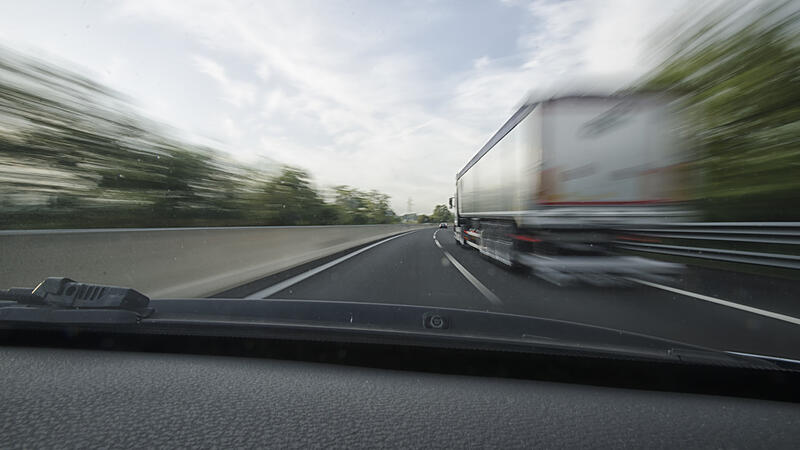Image: colourbox.de
By 2050, traffic-related emissions within the European Union are to be reduced by 90 percent. In order to implement this goal from the “Green Deal”, the European Commission presented a package on freight transport on Tuesday. The freighters should benefit economically from the measures – at the same time the environment should also be relieved.
According to the Commission, trucks cause 28 percent of all greenhouse gases that are produced in road traffic. It is unlikely that heavy traffic on Europe’s roads will rapidly decrease in favor of other modes of transport: in 2020, more than half of all goods transported in the EU were transported by road.
If Romanian Transport Commissioner Adina Valean has her way, trucks will soon be allowed to cross more than just one border with an EU country. Due to the previous regulation, a beer delivery in a 60-ton truck on the way from Copenhagen to Finland had to be split between two trucks. Because after the one-time border crossing to Sweden, the onward journey to Finland was not allowed.
With the new regulation, a number of truck journeys and emissions could now be saved. The plans also provide for the weight limits for electrically powered trucks to be corrected upwards by two or four tons. They were previously at a disadvantage because less cargo could be transported due to the charged battery. Around 96 percent of all trucks on EU roads are currently still diesel-powered.
There is no danger that vehicles weighing 60 tons, so-called Gigaliners, will soon be on Austria’s roads: the national regulations on the weight regulations that apply to road traffic remain unaffected by the Commission’s package. Instead, for example, bureaucratic hurdles for the transport of wind turbines between EU countries are to be removed.
According to the Commission, the fact that the rails are only used sluggishly for freight traffic is mainly due to the inhomogeneous rail system in the international community. In the future, network operators should no longer plan their capacities annually, but over several years. If agreements are not complied with, both network operators and freight companies will be obliged to pay fines. The improved cross-border coordination should ultimately benefit not only freighters but also passengers. (miv)
more from economy




